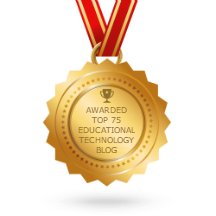 |
|
What Research Is Actually Used by K-12 Administrators?
|
|
 |
|
|
 |
NEPC’s work centers on “the belief that the democratic governance of public education is strengthened when policies are based on sound evidence.” After all, if policy and practice are not based on sound evidence, they are too often hijacked by tradition, ideology, politics, and/or faulty assumptions.
An article published earlier this year in the peer-reviewed journal AERA Open sheds light on the current state of research use in education by describing the evidence that K-12 administrators actually rely upon to do their jobs. And it suggests that some common assumptions are not correct.
Written by Caitlin Farrell, NEPC Fellow Bill Penuel, and Kristen Davidson, all of the University of Colorado Boulder, the article describes a nationally representative survey of 733 K-12 school and district leaders from large, urban districts. A total of 359 of those educators responded to the key survey question, asking respondents to name a piece of research useful to their work and to describe how they used that evidence.
Below are four takeaways from the study on what kind of research school and district leaders actually use and how they use it.
- Books are a top source of research information: Given everything on administrators’ plates, it might make sense to presume that efforts to disseminate research to this group should focus on distilling research into bite-sized chunks. Yet when asked to name research they found useful, 57 percent of respondents mentioned books. Just 17 percent cited research or policy reports, and 13 percent mentioned articles in peer-reviewed journals. The finding has implications for researchers and research disseminators such as policy or professional organizations. “[T]here is little evidence to suggest that creating shorter research briefs for leaders to read would lead to greater research use by leaders,” the authors write. “Instead, if books were a major source of influence, preparing researchers to develop guides that synthesize research into usable frameworks for action might be more valuable.”
- Professional organizations are a top source of research information: Respondents indicated they most frequently accessed research through professional associations for K-12 educators. In addition, a quarter of responses mentioned three authors whose work is often disseminated through these organizations: John Hattie, Robert Marzano, and Richard DuFour. “[W]e need to encourage and incentivize researchers to post and share their research within a wider range of venues, including professional associations where leaders get their research,” the authors write.
- Administrators rarely cited research that met federal guidelines for research evidence: The Every Student Succeeds Act (ESSA) states that research evidence that meets specific criteria should be used when selecting interventions supported by federal funds. These criteria consider randomized controlled trials to be strongest, followed by quasi-experimental studies, and correlational research that controls for selection bias. Yet, although the study found that administrators did use research that met these criteria when engaging in this particular activity (selecting interventions supported by federal funds), they rarely cited this type of research in response to the open-ended question about research they had found useful.
On this last point, the researchers learned that administrators’ reasons for using research extend well beyond selecting interventions. In fact, the top reason why respondents found research useful was that it supported their own professional learning. Other common uses included supporting and monitoring implementation, providing instructional leadership for others, and designing programs and policies.
“[T]he findings point to the need for an evidence infrastructure supported by educational policies that center the practice of educational improvement and transformation broadly conceptualized,” the authors write.
|
|
 |
|
|
 |
Policies should better reflect the complex, multifaceted nature of leadership practice and the kinds of research that will be most useful within those activities. For example, in our survey, we found educational leaders regularly turned to research during the design and leading professional development for others. Yet, it is not clear that a randomized controlled trial of an existing program or practice would be a sufficient guide for design activities.
|
The article concludes with suggestions for future research, which include delving more deeply into understanding the work of research disseminators, and including publishers and professional organizations that translate research for the K-12 administrator audience.
|
|
 |
|
|
 |
This newsletter is made possible in part by support provided by the Great Lakes Center for Education Research and Practice: http://www.greatlakescenter.org
|
|
 |
|
|
 |
The National Education Policy Center (NEPC), a university research center housed at the University of Colorado Boulder School of Education, produces high-quality information in support of democratic deliberation about education policy. We publish original research, policy briefs, and expert third-party reviews of think tank reports. NEPC publications are written in accessible language and are intended for a broad audience that includes academic experts, policymakers, the media, and the general public. Visit us at: http://nepc.colorado.edu/
|
|
 |
|
|
 |
Copyright 2022 National Education Policy Center. All rights reserved.
|
|
 |
|
|
|








 12 Unique Blogs Are Written By Professors
12 Unique Blogs Are Written By Professors
Leave a comment